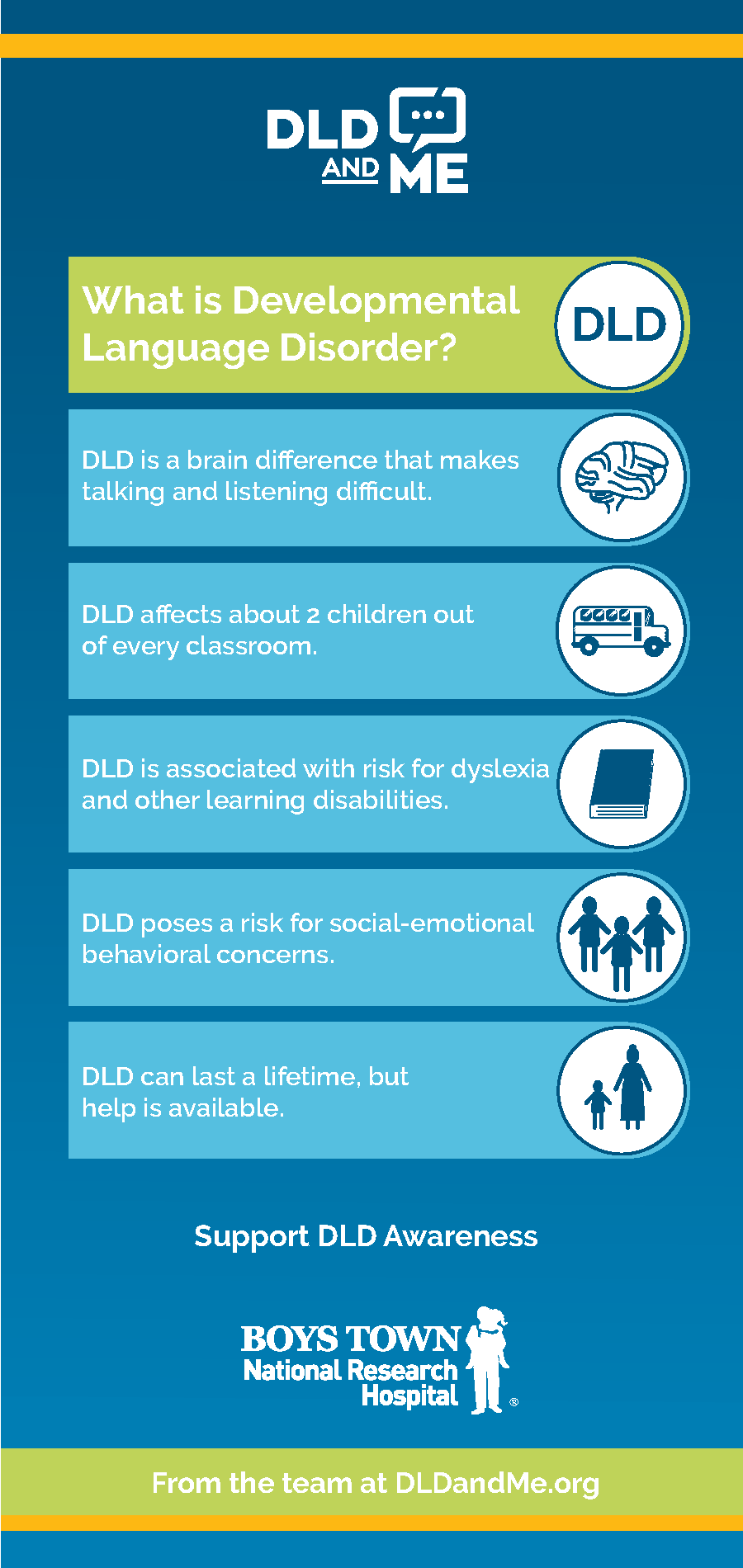Awareness of Developmental Language Disorder is Improved by Using Clear Terminology
Friday, April 10, 2020
Millions of people in the United States struggle to learn language because of an underlying difference in how their brain develops. Despite the large numbers of people affected, many people are not aware of this because of a confusing array of diagnostic terms and inconsistent criterion for diagnosis. Additionally, better awareness and clear terminology will make it easier to get resources for treatment and new research into causes and therapies.
Boys Town National Research Hospital is a leader in hearing and communications related research. Our research team, led by
Karla McGregor, Ph.D. and others are working to raise awareness of Developmental Language Disorder (DLD), as well as developing tools to help clinicians, families, and educators to deal with associated challenges.
In a recently published paper, Dr. McGregor and her colleagues define DLD, describe the difference between DLD and specific language impairment (SLI), and discuss advantages of for using DLD over other terms, including SLI. They define DLD as ‘a language problem that endures into middle childhood and beyond and that has a significant impact on social or educational function DLD is a spectrum disorder where some individuals have relatively exclusive language deficits and normal non-verbal IQ scores, while others have co-occurring deficits or low-normal-range IQs” [1].

What is Developmental Language Disorder?
Source:
DLDandMe.org
One of the major benefits of using DLD as the diagnostic term is that it includes and emphasizes the social and educational influences of language problems. These are the most challenging problems individuals face with language disorders and will be the reason many will seek help. These functional consequences of DLD can also lead to kids acting out or become depressed and isolated. Unlike a more simplistic approach of using cutoff scores from language or intelligence testing, including functional aspects into the definition improves overall understanding and, hopefully, will open the door to greater availability of resources for affected individuals. The recommendation from the authors of this paper is to emphasize the severity of the impact of DLD on social interactions and academic success over scores when diagnosing DLD [1].
A key aspect of this paper is to improve awareness of the DLD terminology. With a myriad of terms used to describe developmental language conditions, it is hard for people outside of speech-language pathologists and researchers to understand the scale of the problem. The authors emphasize the use DLD as a unifying term that is widely used and understood, to create an international platform for information, education, advocacy, and resources. Indeed, the authors and their colleagues at Raising Awareness of Developmental Language Disorder (RADLD) and
DLDandMe.org have already made quite a bit of progress to increase awareness and provide resources to those who need it. Check out the full, open-access article in Perspectives of the ASHA Special Interest Groups, at ASHA.org [1].
References
- 1. Karla K. McGregor, K. K., Goffman, L., Van Horne, A. O., et. al. (2020)
Developmental Language Disorder: Applications for Advocacy, Research, and Clinical Service. Perspectives of the ASHA Special Interest Groups; 5(1) 38–46.
Research Newsletter
Please sign up to receive occasional research news and events emails from Boys Town National Research Hospital.
